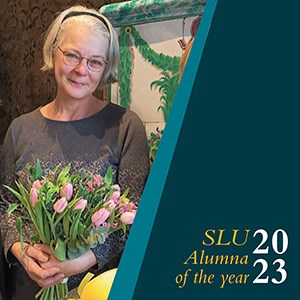Anna has been responsible for food issues at WWF since 2014 and is one of Sweden´s most renowned food experts. Anna has a strong driving force and she has a genuine commitment to achieve a more sustainable food system.
In her role as food expert, Anna has and taken the lead and participated in many successful projects, such as the Meat guide, the Vego guide, One Planet Plate, World Class Veggie and Sustainable Supply Chain for Food in Sweden, of which all have contributed to spread knowledge about sustainable foods to a large number of constituents in Sweden and abroad. The Meat Guide and the Vego Guide would not have come about without the solid scientific basis from SLU, says Anna.
Anna has worked as a research leader, consultant work, and a project leader for LRF. Anna’s competence has a wide span – from drain, waste cycle, fertilizers and plant nutrient balances to climate measures in agriculture. She has also taken part in developing a climate certification for Swedish food.
“I was completely floored, and so happy that my alma mater remembers me!” says Anna when surprised during a department meeting at WWF’s office at Ulriksdal’s castle, just outside of Stockholm. Anna graduated from the horticultural program at SLU in 1997 and has often collaborated with SLU in different fields during her career.
We took the opportunity to ask Anna some questions.
In what way have you benefitted from your education at SLU in your work?
To me, the education has meant that I have gained a broad view of the food system and many valuable contacts for my work, and a strong scientific base. I have often reached out to researchers at SLU for guidance in projects and in decision-making, and to formulate strategies. I have also been in contact with SLU for discussions on developing the food system by creating links between research and application in my work.
What is the most important thing to do within the area of food, to save the planet?
We have so much to work to do to reach a sustainable food system. The researchers at SLU also think that we need to improve both production and consumption, it is not enough to work with either. Less but better meat is a key issue, as well as production that is better for biological diversity, independent from fossil fuels and creation of storage of carbon in soils.
What is your advice to young people who wants to live a climate smart life?
Become politically active, be a conscious consumer, make demands towards the food industry, and contribute by making your voice heard!
